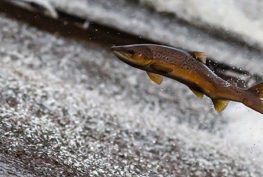FOR IMMEDIATE RELEASE – March 7, 2023
Press Inquiries | 360.786.7050, christian.lamas@leg.wa.gov
OLYMPIA – Legislation to help protect shoreline habitats in Washington passed the Senate with bipartisan support Tuesday.
Senate Bill 5104, sponsored by Sen. Jesse Salomon (D-Shoreline), directs the state Department of Ecology (DOE) to conduct a survey of Puget Sound marine shorelines using new technology to better determine where to prioritize habitat restoration and protection actions.
By June 30, 2024, the bill requires DOE to conduct and maintain a baseline survey of Puget Sound marine shorelines using new technology to capture 360-degree on-the-water imagery. The on-the-water view would be similar to Google street view, with private information blurred. This data will be used to address limitations, help identify restoration sites and structures in bad condition, assist with orca recovery and assess shoreline changes over time.
“Washington is one of the most beautiful states in our nation, and we need to do everything we can to protect our ecosystems. An accurate and up-to-date shoreline survey will help us determine how to prioritize protection and restoration of our shorelines,” Salomon said. “We need to address the current information gaps in order to understand where critical habitat exists, where development exists and where restoration needs to happen.”
The survey to document and map existing shoreline conditions, structures and structure conditions must be completed by June 2025. The information from the surveys will be available to the public and incorporated into state geographic information system mapping and updated on a regular two-year cycle. The survey includes Puget Sound shorelines and related inland marine waters, including the Strait of Juan de Fuca, Hood Canal and the San Juan Islands.
“We are quickly running out of time in the race to save Puget Sound,” said Amy Carey from Sound Action. “Without baseline surveys, recovery and nearshore protection efforts have been missing a critical tool in the fight. This bill will change that, giving shoreline planners, nonprofits and other stakeholders the up-to-date information they need to recover the marine food web — including forage fish, marine birds, salmon and the endangered Southern Resident orcas.”
This bill is now headed to the House for consideration.



